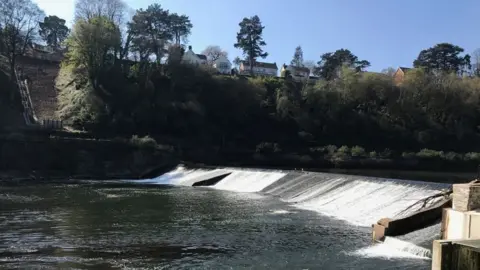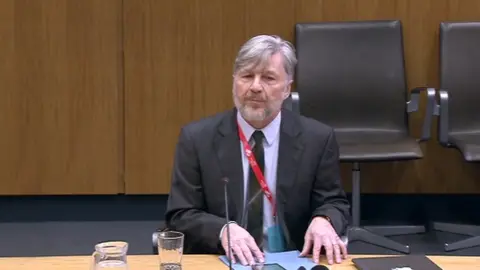Half of Taff river insects have plastic in them, study suggests
 BBC
BBCHalf of insects in the Taff river system have plastic in them, a study by Cardiff University has suggested.
Ecology professor Steve Ormerod said micro-plastics "appear to be everywhere" in the Taff catchment.
He told assembly members that more research is needed, with little known on what impact it has on humans.
The academic was speaking at an assembly climate change committee inquiry into the impact of micro-plastics in Welsh waterways.
Possible sources of micro-plastics include road paint and tyre dust - but AMs were told that it was extremely difficult to identify where the material comes from.
Mr Ormerod said by 2016 it became known that plastics were becoming a "substantial problem" to the marine environment.

"We also knew that rivers were a major route globally for some of that plastic material reaching the ocean," he said. "We knew that the Taff and the south Wales rivers in general had a problem."
"We started to look at the extent that insects in the river were contaminated by plastic, [and] found that one in every two insects in the Taff river system already contain plastics."
He said his team found that at two-thirds of sites it examined, evidence was found that river birds were ingesting micro-plastic particles.
"That tends to be a bigger issue where there is more urban land, but micro-plastics appear to be everywhere in the Taff catchment.
"We've come to a conclusion that we need to know far more about this issue in general, there are major gaps in our understanding of the sources of this material, what the movement through river systems is, where it ends up, how much goes into the sea, and what damage it does along the route."
'I don't think we've invested quite so much here'
The professor said micro-plastics can arise from the breakdown of larger plastic material, with a substantial amount coming from sewage overflow that bypass treatment works.
He said the Welsh Government support in research would be "valuable".
"There are other areas more advanced than we are, and I don't think we've invested quite so much here in the UK more specifically in Wales, in understanding the sources of plastic material in river catchments," Prof Ormerod said.
"We don't know what the effects are on species populations,
"We do need to know far more about what this means for us - how much is coming through the food we eat, how much is coming through the water we drink.
"It is a substantial blind spot for what could be a substantial area of risk."
